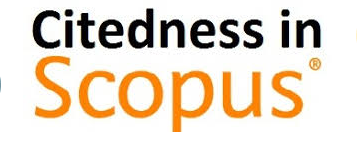Consolidating Indonesia’s Fragile Elections Through E-Voting: Lessons Learned from India and the Philippines
DOI:
https://doi.org/10.18196/iclr.v3i1.11298Keywords:
e-voting, election fraud, Indonesian election systemAbstract
This research argues that implementing the electronic voting (e-voting) system in Indonesia is urged following the nation's first-ever 2019 simultaneous elections, which cost a deadly price of 527 election official lives of reported extreme fatigue during and after the event. Billed as "the world's most complex election", it has reached a consensus that the current manual election system, in which five different paper-based elections are voted at a time, has to be changed. Not to mention that the long-time gap between the voting day and the result announcement may create an opportunity for election fraud. This is evidenced by loads of electoral dispute lawsuits from the previous election brought to the Constitutional Court of Indonesia accused the others of cheating. This research stresses that despite the controversies of whether Indonesia, an archipelagic country with more than 17 thousand islands and 267 million people, is ready for e-voting. Whether the application of technology is an appropriate response to the election problems? E-voting is desired as a long-term solution and intends to solve many issues such as speeding the counting of ballots, reducing the cost of elections, providing accessibility for disabled voters, and increasing overall voter turnout.References
Ghofar, A. (2018). Dispute on Presidential
Threshold: Decisions of the
Constitutional Court and Other
Countries' Experiences. Jurnal
Konstitusi, 13(3)
Ramadhan, A.P., et. al. (2018). Electronic
Voting in Indonesia: Head of Village
Election. Jurnal Sospol, 4(2)
Trihartono, A. & Patriadi, H.B. (2015). The
Indonesian General Election and
Beyond: Melting 'Frozen' Cleavages.
Asian Journal of Comparative Politics,
(1)
Tsahkna, A-G. (2013). E-Voting Lessons from
Estonia, European View, 12
Birch, S. (2011). Electoral Malpractice. Oxford:
Oxford University Press
Avregou, C., et al. (2019). Trusting E-Voting
Amid Experiences of Electoral
Malpractice. Journal of Information
Technology, 34(3)
Dagg, C.J. (2007). The 2004 Elections in
Indonesia: Political Reform and
Democratisation. Asia Pacific
Viewpoint, 48(1)
Holmes, D. & Sulistyanto. (2016).
Understanding the Indonesian
Mediapolis: The Role of Social Media During the 2014 Indonesian
Presidential Election. Communication,
Politics & Culture, 49(2)
Suryani, D. (2015). Defending Democracy:
Citizen Participation in Election
Monitoring in Post-Authoritarian
Indonesia. Journal of Government and
Politics, 6(1)
Lee, D-Y. & Chung, S.H. (2004). Democratic
Consolidation and Electoral Reform in
Southeast Asia: Philippines, Thailand,
and Indonesia. Global Economic Review,
(4)
Aspinall, E & Mietzner, M. (2014). Indonesian
Politics in 2014: Democracy's Close
Call. Bulletin of Indonesian Economic
Studies, 50(3)
Cahyono, H. (2004). Pelanggaran Pemilu
Legislatif 2004. Jurnal Penelitian Politik,
(1)
Ismanto, I. & Legowo, T.A. (2005). Pemilihan
Presiden Secara Langsung 2004. Jakarta:
Kedeputian Dinamika Masyarakat
Menristek
Darmawan, I. & Nurhandjati, N. (2016).
Electronic Voting in Indonesia: Head
of Village Election. Jurnal Politik, 1(2)
Wanandi, J. (2004). The Indonesian General
Elections 2004. Asia-Pacific Review,
(2), p 115-116.
Masataka, K. (2015). Information and
Communication Technology and
Election Administration in the
Philippines. Philippines Political Science
Journal, 36(1)
Hardjaloka, L. & Simarmata, V.M. (2011). E-
Voting: Kebutuhan vs. Kesiapan
(Menyongsong) E-Demokrasi. Jurnal
Konstitusi, 8(4)
Anistiawati, M.L. (2014). Implementasi
Kebijakan Penerapan Elektronik
Voting (E-Voting) Dalam Pemilihan
Kepala Desa. Jurnal Citizen Charter,
(2)
Prandini, M & Ramili, M. (2012). A Model for
E-voting Systems Evaluation Based on
International Standards: Definition
and Experimental Validation. e-Service
Journal, 8(3)
Alomari, M.K. (2016). E-Voting Adoption in a
Developing Country. Transforming
Government: People, Process and Policy,
(4)
Norris, P. (2014). Why Electoral Integrity
Matters. Cambridge: Cambridge
University Press
Norris, P. (2013). The New Research Agenda
Studying Electoral Integrity. Electoral
Studies, 32(4)
Levitsky, S & Ziblatt, D. (2018). How
Democracies Die. New York: Crown
Lauer, T.W. (2004). The Risk of e-Voting.
Electronic Journal of e-Government, 2(3)
Apriani, T., et. al. (2018). E-voting in the
Village Head Election in Batanghari
and Kabupaten Bogor Regencies.
Jurnal Bina Praja, 10(2)
Boudreau, V. (2009). Elections, Repression
and Authoritarian Survival in Post-
Transition Indonesia and the
Philippines. The Pacific Review, 22(2)
Legislations
Constitution of the Republic of
Indonesia
Law Number 7 of 2017 on General Election
Law Number 34 of 2004 on Indonesia
National Army
Law Number 23 of 2003 on General Election
for President and Vice-President
Law Number 2 of 2002 on Indonesia National
Police
Constitutional Court Decision Number
/PHPU.PRES-XIII/2014
Constitutional Court Decision Number
/PUU-VII/2009
Constitutional Court Decision Number 108-
/PHPU.B-VII/2009
Constitutional Court Decision Number
/PHPU/BII/2004
Internets
Anwar Siswadi. (2019). Saat Orang Kota
Nyoblos Pakai Paku, 981 Desa Sudah e-
Voting. Tempo.co, retrieved from
https://tekno.tempo.co/read/120278
/saat-orang-kota-nyoblos-pakai-
paku-981-desa-sudah-e-
voting/full&view=ok
BBC Reality Check Team. (2019). Indonesia
Election 2019: Why Did So Many
Officials Die? BBC, retrieved from
https://www.bbc.com/news/world-
asia-48281522
Dina Manafe and Nur Yasmin. (2019). What
Kills Indonesian Election Officials?
Jakarta Globe, retrieved from
https://jakartaglobe.id/news/what-
kills-indonesian-election-officials/
Sausan Atika. (2019). Anies in Tough Spot in
Wake of Jakarta Riot. The Jakarta Post,
retrieved from
https://www.thejakartapost.com/ne
ws/2019/05/24/anies-tough-spot-
wake-jakarta-riot.html
Miscellaneous
Ufen, A. (2008). The Evolution of Cleavages in
the Indonesian Party System. Hamburg:
German Institute for Global and Area
Studies
Ellis, A., et. al. (2007). Voting from Abroad: The
International IDEA Handbook, Mexico:
Federal Electoral Institute of Mexico
Bland, B. (2019). Politics in Indonesia: Resilient
Elections, Defective Democracy, Lowy
Institute, retrieved from
https://www.lowyinstitute.org/publi
cations/politics-indonesia-resilient-
elections-defective-democracy
Zafar, C.N. & Pilkjaer, A. (2007). E-Voting in
Pakistan, Master Degree Thesis, Lulea:
Department of Business
Administration and Social Sciences of
Lulea University of Technology
Mietzner, M. (2009). Indonesia's 2009 Elections:
Populism, Dynasties and the
Consolidation of the Party System,
Sydney: Lowy Institute for
International Policy
Downloads
Published
Issue
Section
License
By publishing with Indonesian Comparative Law Review, authors agree to the following terms:
1. Authors retain the copyright to their work and grant Indonesian Comparative Law Review the right of first publication, while also licensing the work under a Creative Commons Attribution License (CC BY 4.0). This license permits others to share the work, provided they acknowledge the author and the initial publication in this journal.
2. Authors may enter into separate agreements for non-exclusive distribution of the published version of their work, such as posting it to an institutional repository or including it in a book, with acknowledgement of its initial publication in this journal.
3. Authors are encouraged to share their work online, for example on institutional repositories or personal websites, both before and during the submission process. This practice can lead to productive exchanges and increased citation of published work.



